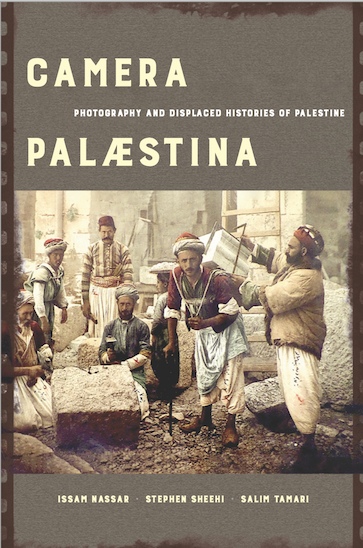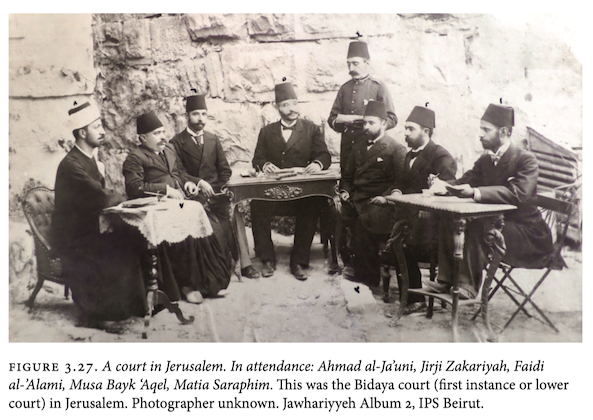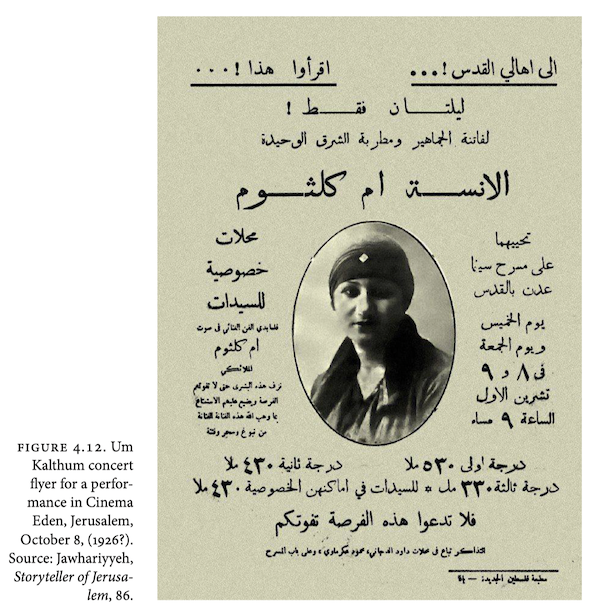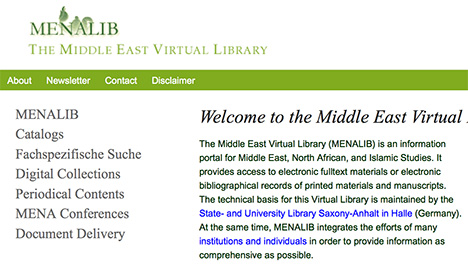This is a fabulous new book from the University of California Press discussing photographs from late 19th and early 20th century Palestine from seven notebooks by Wasif Jawhariyyeh (1904–1972) that contained some 900 images. And it is available for download as open access. Below is one of the images, as well as a flyer for a concert in Jerusalem by Umm Kalthum. Check it out…
Category Archives: Ottoman Empire
The Post-Ottoman Century: A View from 1917

The Ottoman Empire, firmly established after the conquest of Constantinople cum Istanbul in 1453 lasted for almost five centuries, with the last sultan, Mehmet VI, leaving Turkey in November, 1922. In March, 1924 the official end of the “Ottoman Caliphate” was announced. The so-called “sick man of Europe” in its last century was ultimately a victim of the disastrous World War I. What was the view of the future near the end of the empire? In the May, 1917 issue of Century Magazine, Herbert Adams Gibbons wrote an article entitled “Europe and Islam: The Problems of the Califate and the Devolution of Mohammedan Lands.” This article also serves as a chapter in his book, published in the same year as The Reconstruction of Poland and the Near East (pp. 101-153). His use of “Mohammedan” was common for the time, but his argument is well worth reading today for his critique of European relations with the Ottomans and the Islamic world.
For Gibbons, who had spent years as a journalist in Turkey, the handwriting was already on the wall. The Ottoman “defenselessness has kept whetted the territorial appetite of the European powers. Some choice morsels have already been devoured: Russia was eating steadily until she reached Armenia across the Caucasus in 1878; and France and England did not stop for half a century until Tunis was consumed in 1881 and Egypt in 1882; Austria revived the European traditions of the generation before in Bosnia-Herzegovina in 1908; Italy and France in Tripoli and Morocco in 1911.”
“And after the present what – what more?” asked Gibbons. The carving up of Ottoman lands on the back of a napkin had already been set on the table, so the knives were ready. Gibbons noted that Russia wanted all of Armenia and even Istanbul; the French claimed Syria; the British were beating their way to Baghdad; Italy was dreaming of Albania and Asia Minor; Austria-Hungary was savoring Macedonia. Germany, on the other hand, “claims to be the protector of the integrity of the Ottoman Empire, and the sole friend left to Islam.”
“The history of international diplomacy in the Islamic world,” writes the American journalist Gibbons with little sympathy for European political ambitions, “is an unbroken record of bullying and blundering on the part of all the powers. In governmental policies one searches in vain for more than an occasional ray of chivalry, uprightness, altruism, for a consistent line of action in attempting to solve the problems that were leading Europe from one war to another, for constructive statesmanship. European cabinets used the aspirations of Christian subject races to promote their own ends against one another and to threaten Turkey. Then, for fear of sacrificing what they thought they had gained, foreign offices and ambassadors allowed the wretched Christians to be massacred for having dared to respond to European overtones and to put faith in promises of protection.”
Here is what Gibbons proposed:


Gibbons continues: “The indictment of European diplomacy in the near East is terrible; one might even say that it seems incredible.” After recounting the havoc sown by the major European powers, he adds, “The result is that virtually every Mohammedan country in the world has been treated by European nations as Belgium and Serbia and Poland have been treated. Their wrongs cry out to Heaven to be redressed, their aspirations cry out to the sense of fairness and justice for all mankind to be heard.”
So what was the author’s wish in 2017: “The problem is a thorny one, and, I am told by my diplomatic friends, ‘exceedingly difficult’. But that is only because European statesmen and politicians have made it so. Let every power in Europe proclaim its own disinterestedness, and state that it does not regard this war as a war of conquest, but a war of emancipation, and, lo! the problem disappears.”
Sadly, the problem did not disappear and new problems inevitably evolved.
MenaLib Site
MENALib is a major resource for find e-texts, manuscripts, etc.
An Impish Desire for Imperial Déjà Vu

An Impish Desire for Imperial Déjà Vu
Daniel Martin Varisco, MENA Tidningen, May 27, 2015
A recent online commentary by Robert Kaplan for Foreign Policy displays the provocative title: “It’s time to bring imperialism back to the Middle East”. The punch line surfaces in the final paragraph: “Imperialism bestowed order, however retrograde it may have been”. Retrograde? How about brutal?
Let’s see: Mussolini made the trains run on time; Hitler brought Germany out of the humiliation of a World War I defeat; Genghis Khan lengthened the Silk Road by slaughtering just about everyone along the way. So let’s bring back the Shah of Iran, Saddam Hussein, Colonel Qaddafi and all the recently demoted dictators so we can have “order†again, the kind of “order†which is imperially blessed and apparently serves American interests.
Kaplan’s view of Middle Eastern history is about as top-down and lop-sided as you can get. Take the Sublime Porte, for example: “For hundreds of years, Sunnis and Shiites, Arabs and Jews, Muslims and Christians, in Greater Syria and Mesopotamia had few territorial disputes. All fell under the rule of an imperial sovereign in Istanbul, who protected them from each otherâ€, he writes. Really? What romance novel has Kaplan been reading? Was there such love for the Ottoman sultans that no ethnic group ever complained? Did all these subjugated people sleep peacefully at night knowing that the Janissaries would protect them from each other? But why stop with the Ottomans?! The caliphs in Abbasid Iraq must have been all made for a Disney Aladdin movie and their mercenaries nothing short of angels? And what barbarian would have dared speak against the glorious Pax Romana of the Caesars? Forget the out-dated Sermon on the Mount. According to Kaplan, blessed are the Machiavellian despots for only they can enforce peace in the name of order, at least in what used to be called the Holy Land. Continue reading An Impish Desire for Imperial Déjà Vu
Ottomanipulation
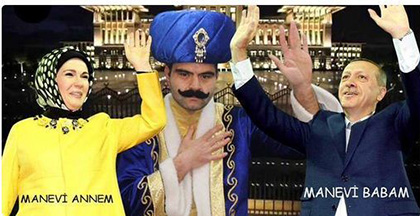
I don’t think you need a seismic detector anywhere in Turkey these days to determine if Mustafa Kamal Ataturk is not rolling over in his mausoleum in Ankara. The man who dragged Turkey so hard that the fez fell off and who de-scripted the calligraphically beautiful Ottoman language has been superseded by a leader no less contested, President and former Prime Minister Recep Tayyip ErdoÄŸan. ErdoÄŸan is a polarizing figure, imposing his will in much the same way that military-backed leaders have done in Turkey’s past. And the comparisons between him and the old line of sultans is in the air these days. Calling for mandatory learning of the old Ottoman script, no matter how appealing to academic Ottomanists, is suggestive of more than historical nostagia. Building a huge palace of some 1,150 rooms (there were only 1,001 nights in the Arabian Nights epic) at a cost of around 490 million euros ($615 million) and then deciding that it should be called a kulleye, with all the religious connotations this conjures in Turkey, is eyebrow-raising to say the least.
We are now entering the age of political Ottomanipulation in Turkey. The next election will see politicians topped off with turbans and probably handing out tulips to buy votes. New political ads have no need to be satirized, since no satire could improve on their critique. There is no danger of Turkey returning to the sublime porte; that sick man of Europe cannot be resurrected, especially by an admirer of the modern Muslim Brotherhood. The Islamic branding that ErdoÄŸan brandishes is thoroughly contemporary and metaphorical. Taking pride in the Ottoman past is the point, but in order to create a new kind of Islamic leadership. There is no room for a caliph in the modern world any more than for Italy to go back to its caesars (even if those were the salad days for my grandfather’s homeland). But if you want to gain as absolute power as you possible can, religion is the best way to go. If you happen to be president of Uzkekistan for over two decades it helps to have a first name of Islam. And if Tamerlane can be trussed up in modern propaganda in Uzbekistan, why not Sultan Suleiman the Magnificent.

Will it work? Will reading Ottoman script on mosque walls and watching politicians parade around in the old robes of authority convince the electorate that this is the best way to move forward? Time will tell, obviously, but in the mean time it may be useful to follow Turkey’s economic health. If Marx was around, I suspect he would argue that the jingle of coins in the pocket beats staring at museum objects. No fadish fetish beats the economy for predicting the probable direction of change.
Otto-mania
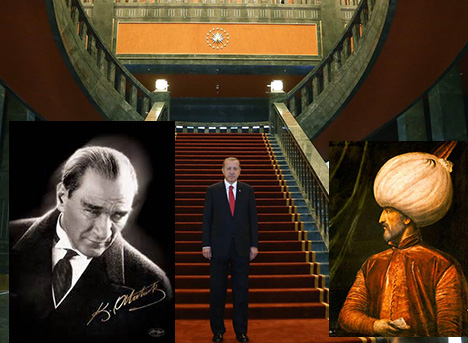
Turkey in the Ergogan era is undergoing an interesting change. Now it seems the course is less about economically reinvading Europe than going on a kind of Ottoman-matic pilot course. A committee has recently announced a call to have mandatory teaching of Ottoman in Turkish high schools. “According to the proposal, Ottoman Turkish should be compulsory because people in Turkey are not able to read documents from Ottoman times, including the epitaphs of their forefathers. The proposal argues that Ottoman Turkish is necessary to keep Turkish people’s ties with their past strong,” notes a Turkish paper. As a student of history in the region, I am delighted that there should be such an interest in promoting the study of Turkey’s Ottoman past. But given that Ataturk must be rolling over in his mausoleum, one wonders about the political symbolism in such a revival.
President Erdogan has come under considerable criticism at home and abroad for his support of the Muslim Brotherhood, a more conservative brand of Islam than many Turks favor, and his apparent failure to stem the tide of Western and Arabic recruits for the ISIS/ISIL/IS caliphate in the making (and unmaking) to his south. Now that there is a new Ak Saray (White Palace) for President Erdogan with 1,000 rooms on 150,000 sq. m of former forested land and at a cost now nearing $615 million, the idea of reviving the Ottoman caliphate is clearly waiting in the wings (and that saray has a lot of wings). The Middle East still has its kings, sultans and emirs, even if most of the dictators have bit the dust. So can Ak Saray blend with the Topkapi to form a new re-Ottomanized Turkey? Continue reading Otto-mania
Slavery in the Ottoman Era
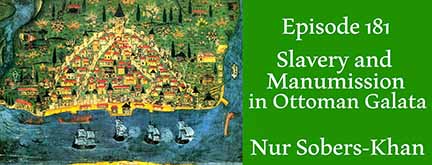
Check out the new podcast by Nur Sobers-Khan on the Ottoman History Podcast Site. Here is a description of the podcast:
The legal and social environments surrounding slavery and manumission during the early modern period varied from place to place and profession to profession. In this episode, Nur Sobers-Khan presents her exciting research on the lives of a particular population of slaves in Ottoman Galata during the late eighteenth century, how they were classified and documented under Ottoman law, and the terms by which they were able to achieve their freedom.
A Random Stroll in Istanbul
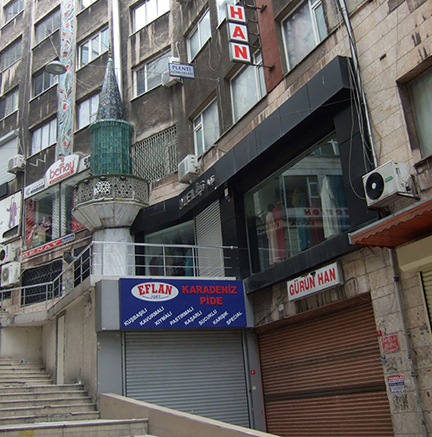
Istanbul, where minarets share space with commercial signs
Having spent a short eid vacation in Istanbul, I had the opportunity to walk around the Sultan Ahmet and Eminönü areas. The main streets near the Sultan Ahmet mosque and Topkapi were full to overflowing with tourists from just about everywhere. The lines to enter the major sites stretched for hour-long waits, so I decided it was more prudent to simply walk the back streets with no particular goal in mind. On the way to the Spice Suq, where many of the shops remained open to satisfy the crowds of tourists and merchants’ pockets, I saw the iconic duality of modern Turkey in full force. On one building is a commanding mural of Ataturk, but across the street rises a conservative Islamic center. Down the road from an Ottoman religious shrine there will be a Starbucks or Burger King. Outside a fashion store is a giant image of a vivacious woman in Victoria’s Secret-like underwear, as a woman in niqab walks by. East and West, Ottoman vs. Republic, liberal and conservative: contemporary Turkey is where academically unfashionable binaries rule the streets, if not the hearts and minds of many Turks.
Of course this is the touristic center of Istanbul, complete with the tram stop that always seems to have a crowd outside. There must be a hundred or more small hotels and just as many restaurants and cafes. Kebab (or Kebap, if you prefer) is cuisine’s sultan here today. We stayed in the delightful and relatively inexpensive World Heritage Hotel, where the hospitality and ambiance are superb, and only a short walk from the Sultan Ahmet mosque, whose majestic minarets we could see from our breakfast table. Of the many restaurants nearby, my favorite was Amedros, which offers a wide range of dishes beyond the ubiquitous kebab fare. For authentic Ottoman cuisine, be sure to visit Asitane, which is near the Kariye Camii and Chora Church Museum. Of course, the joy of being in Istanbul is the constant discovery of something you will enjoy. If you have never walked these streets and alleys, you are missing a jewel outside the museums, splendid as they are.
